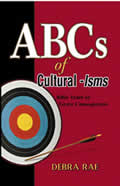REMEMBER
THE U.S. CONSTITUTION
PART 2
By
Debra Rae
April 3, 2011
NewsWithViews.com
The WOW Factor: Watchmen on the Wall for Such a Time as This
From very early history to modern times, city walls served as fortifications, if not fortresses. The term, “fortification,” is derived from the Latin fortis ("strong") and facere ("to make") and speaks to “making strong” one’s defense, specifically from enemy intrusion. Able to see in the distance, watchmen on city walls forewarned fellows of impending danger, thereby inspiring appropriate preparations and timely action.
Vestiges of ancient defenses remain even today; however, one need not travel to Persepolis in Iran to find an example. Texas will do just fine. There, a former Spanish religious outpost converted to a makeshift fort, the Alamo, recently marked the anniversary of its infamous fall in 1836. It was then that, for over 13 days, 186 patriots withstood Santa Anna’s 4,000 troops.
Perhaps the most notorious failure of a well-known fort, the Alamo had no chance of prevailing. Indeed, Santa Anna described her as an "irregular fortification hardly worthy of the name." The Alamo was woefully undermanned, under-provisioned, and poorly commanded. Significantly, it was not her stouthearted defenders, but rather avoidable defense flaws that sealed her doom.[1]
As mentioned above, a fortification “makes strong.” Just how strong is paramount. You see, while the Alamo was designed to withstand an attack by native tribes, it could not weather an artillery-equipped army. Even so, Texas engineer Green B. Jameson boasted to army commander Sam Houston that, given artillery at their disposal, they could "whip [the enemy] ten to one.”[2]
Defenses Compromised
From a Bible point of view, believers are commanded to “war a good warfare.”[3] Their charge is to be fully armored up,[4] ever vigilant,[5] and “instant in season and out.”[6] While these mandates apply to spiritual warfare, they likewise speak to national defense. God may well have been “on their side,” as Alamo patriots claimed; however, it’s conceivable that, had proactive steps been taken, the defenders’ fate might have been different.
In like manner, America may boast that “God is on her side,” and that her superior defenses are impenetrable; but in compromising her borders, she falls short of defending herself against very real threats—and this time, not just from Mexico! According to a recently released government report, less than one percent of the 4,000-mile stretch along the U.S.-Canadian border is adequately protected.
Senator Joe Lieberman warns that the northern border from Washington State to Maine provides “easy passage into America by extremists, terrorists, and criminals whose purpose clearly is to harm the American people.” It is, in fact, a higher risk to public safety than its counterpart to the far south. Today, Canada harbors more Islamic extremist groups than does Mexico.[7]
Promoting open borders subjected to a network of global bureaucracies renders our union all the more vulnerable. Nonetheless, a planned, ten-lane international corridor will be the first leg of what has been dubbed the NAFTA Superhighway, boasting a tri-national database under joint military command. With no signed agreements or congressional oversight, our nation’s merged future with Canada and Mexico will allow freer flow of people, goods, and capital—drugs, terrorists, and human traffickers included.[8]
Wily Warfare
Rather than mobilize a professional, highly disciplined military force, mostly volunteers defended the Alamo. Alamo defenders did not wear uniforms. For example, Davy Crockett was more a sharpshooter-hunter and storyteller than he was a soldier. As such, his standard attire was that of a frontiersman.
Similarly, Americans too often fail to don the “whole armor of God” without which they open our nation to wiles of her enemies.[9] Case in point: Former governor of Colorado Dick Lamm fleshed out what he recognized as a genius strategy for expediting America’s demise.[10] Without the “shield of faith” properly positioned, America is catching the proverbial arrows of this clever scheme.
It goes like this: To spark tension and turmoil, one first must turn America into a bi- or multi-lingual and bicultural country. Next, to level the playing field, one must invent multiculturalism and, then, celebrate diversity over unity. No more the “melting pot,” America establishes her metaphoric identity with the “salad bowl,” components for which are distinguished by the hyphenated identity, bilingual education, and radical historical revisionism.
Some surmise that under the gargantuan burden of entitlement, even for lawbreakers, America’s already begun her downward descent. Once the rate of immigration overtakes assimilation, chaos will be unavoidable. That said, to strengthen her defense from enemies within and without, America mustn’t remain undermanned, under-provisioned, underprepared, distracted, poorly commanded, and out-strategized. Otherwise, she’ll share the Alamo’s fate.
Undermanned and Under-provisioned
Though the Texan force grew slightly with the arrival of reinforcements led by James Bowie and William B. Travis, Sam Houston could not spare the number of men needed to mount a successful defense. By January 1836, fewer than 100 soldiers remained; and the sick and wounded among them were unable to fight.
American patriot-frontiersmen and heroes are as few and far between today as were defenders of the Alamo. Ever growing numbers of “victims” outnumber stalwartly rugged, American individualists. Case in point: Recent union rallies whereby government-employed activists in Wisconsin pooh-poohed budget-repair bills, bemoaned the plight of public workers, and affirmed their right to lobby for more government spending at taxpayers’ expense. Forced dues to unions are tantamount to taxpayer subsidies to do just that, but never mind.
Nor does it matter that, given our struggling economy, sometimes lavish, taxpayer-funded bennies are unsustainable. Even “undocumented workers”—i.e., “illegals”—feel entitled to jobs and all the rights and privileges of American citizens. “Victims” look to corporations and America’s wealthiest citizens to bear the brunt of their demands—if necessary, under threat of interrupted vital services.[11]
Forget that our nation is collapsing under the federal deficit, and Washington can’t find a nickel to cut from the budget. “Victim” entitlements take priority. For example, compliments of American taxpayers (who themselves struggle to pay bills), a government program called “Lifeline Benefits” provides a free SafeLink Wireless cell phone coupled with assurance that “income-eligible consumers” will get no bills and no contracts ever.” [12]
More among us would do well to heed the words of Texas Colonel Travis. "Our business,” he explained, “is not to make a fruitless effort to save our lives, but to choose the manner of our death." His was a call to sacrifice. With that, Travis drew his sword and slowly marked a line in the sand. "I now want every man who is determined to stay here and die with me to come across this line."[13]
Unlike defenders of the Alamo, too many among us elect to join French soldier of fortune, Louis Moses Rose who, for self-interest, refused Travis’ challenge.
Underprepared and Distracted
Unfortunately, the Texan government was in turmoil and unable to provide much assistance to Alamo defenders. Struggling to secure men and supplies, Texas settlers were unprepared for a long campaign.
Nonetheless, unaware of the Mexican army's proximity, the majority of the Alamo garrison joined Béxar residents at a fiesta. Similarly, too many today turn deaf ears to watchmen’s warnings.[14] Packed agendas propelled by time-gobbling social media, obsession for entertainment, and “cares of life” distract and delude clear thinking.[15] Wartime was not (and is not) the best time to throw a party. But party, they did.
Poorly Commanded
No one was entirely certain who actually was in charge. Four different men claimed to have been given command over the entire army. When appointed sole commander of all troops, Sam Houston journeyed to Gonzales to take command of the 400 volunteers who were still waiting for Colonel James Fannin to lead them to the Alamo. Unbeknownst to them, Fannin had aborted the mission of mobilizing men, artillery, and supplies for the Alamo. Dissent and confusion abounded when Fannin, his officers, and enlisted men blamed one another for lack of follow through.
When Neill left the Alamo to recruit additional reinforcements and to gather supplies, he transferred command to Travis, the garrison’s highest-ranking regular army officer. Although unconvinced by the reports of the Mexican army's imminent arrival, Travis stationed a soldier in the San Fernando church bell tower—the highest location in town—to watch for signs of an approaching force. Even then, few arrangements were made in preparation for a potential siege in exceedingly cold temperatures.
To complicate matters, volunteers within the garrison refused to accept Travis as their leader. Instead, they elected Bowie as their commander because he had a reputation as a fierce fighter. Unfortunately, Bowie celebrated his appointment by getting very intoxicated and, then, creating havoc in Béxar. Moreover, Houston's orders to Bowie were vague; and historians disagree on their intent.
To mitigate ill feelings due to Bowie’s drunkenness, he agreed to share the command with Travis; however, once Bowie succumbed to illness, Travis assumed sole command of the garrison. Even as the Alamo suffered a dirge of rank-and-file, proactive leadership coupled with neglect, misunderstandings, dissention, and bickering, so it is with present-day America. Without timely intervention, the probable outcome will be every bit as damaging.[16]
Out-strategized
Santa Anna opportunistically timed their final assault for when Texans fell into the first uninterrupted sleep many had gotten since onset of the siege.[17] The makeshift north wall of the Alamo contained many gaps and toeholds, and few defenders guarded the west-wall gun ports. As enemy troops massed against Alamo walls, Texans were forced lean over them while shooting. This further exposed defenders to Mexican fire. In the heat of battle, Texans neglected to spike their cannon before retreating to fortified barracks, where remaining defenders were ensconced and, in the end, overcome.
As a nation, we, too, are asleep at the wheel. Entangled with affairs of this life and embroiled in contentious partisanship,[18] we have compromised our “shield and buckler” of truth for the god of political correctness.[19] More often than not, sobriety and vigilance evade us.[20] As a result, we have compromised God’s protective wall of fire round about us and forfeited His glory in our midst.[21
| Subscribe to the NewsWithViews Daily News Alerts! |
With God’s help, we can take back the reigns of our nation. If there’s still some fight in us, we’d best cross Travis’ line in the sand, forego fruitless efforts to save our own lives, and make whatever sacrifice is necessary to fortify our borders and our ranks within—in other words: Remember the Alamo. Otherwise, we’re destined to obsolescence, if not extinction. For part one click below..
Click here for part -----> 1, 2,
Footnotes:
1.
The Alamo: The
Battle
2.
2. Small, Melvin and J. David Singer. Resort to Arms: International
and civil Wars 1816–1980 and Berenbaum, Michael. A Mosaic
of Victims: Non-Jews Persecuted and Murdered by the Nazis, New
York: New York University Press, 1990.
3.
1 Timothy 6:12.
4.
Ephesians 6:13.
5.
1 Peter 5:8.
6.
2 Timothy 4:2.
7.
Hotakainen, Rob (2011), McClatchy Newspapers, Seattle, WA:
The Seattle Times Nation & World Report, A2 News
8.
Coming
Through! The NAFTA Super Highway
9.
Ephesians 6:13.
10.
How
to Destroy America
11.
Olasky, Marvin. Purim in Wisconsin. Asheville, NC: World, 12
March 2011
12.
Link
13.
Hardin, Stephen L. (1994), Texan
Iliad, Austin, TX: University of Texas Press, ISBN 0-292-73086-1,
p. 111.
14.
Luke 8:4.
15.
Matthew 13:22.
16.
Todish, Timothy J.; Todish, Terry; Spring, Ted (1998), Alamo Sourcebook,
1836: A Comprehensive Guide to the Battle of the Alamo and the Texas
Revolution, Austin, TX: Eakin Press, ISBN 978-1-57168-152-2, p.
29, 30-31.
17.
Judges 16:20.
18.
2 Timothy 2:4.
19.
Psalm 91:4.
20.
1 Peter 5:8.
21.
Zechariah 2:5.











 Share
This Article
Share
This Article







